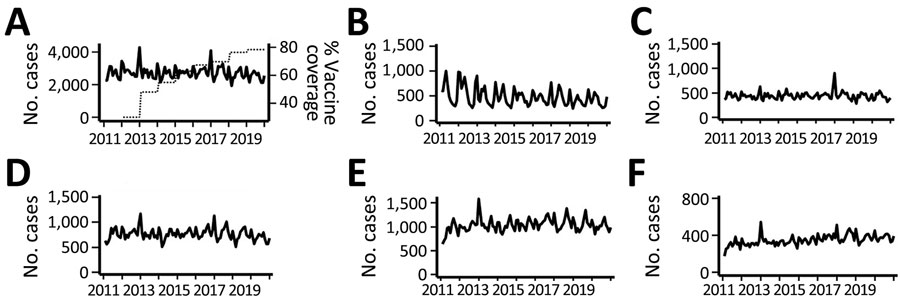Volume 30, Number 9—September 2024
Research
Effects of Rotavirus Vaccination Coverage among Infants on Hospital Admission for Gastroenteritis across All Age Groups, Japan, 2011–2019
Figure 1

Figure 1. Time trends in gastroenteritis hospitalizations among different study populations in study of effects of rotavirus vaccination coverage among infants on hospital admission for gastroenteritis across all age groups, Japan, 2011–2019. A) Monthly numbers of gastroenteritis inpatients in the overall population, compared with annual mean rotavirus vaccination coverage. B–F) Monthly numbers of gastroenteritis hospitalizations among different study populations: B) young children <5 years of age; C) older children and adolescents 5–19 years of age; D) adults 20–59 years of age; E) older adults ≥60 years of age; F) immunocompromised persons.
Page created: July 31, 2024
Page updated: August 20, 2024
Page reviewed: August 20, 2024
The conclusions, findings, and opinions expressed by authors contributing to this journal do not necessarily reflect the official position of the U.S. Department of Health and Human Services, the Public Health Service, the Centers for Disease Control and Prevention, or the authors' affiliated institutions. Use of trade names is for identification only and does not imply endorsement by any of the groups named above.